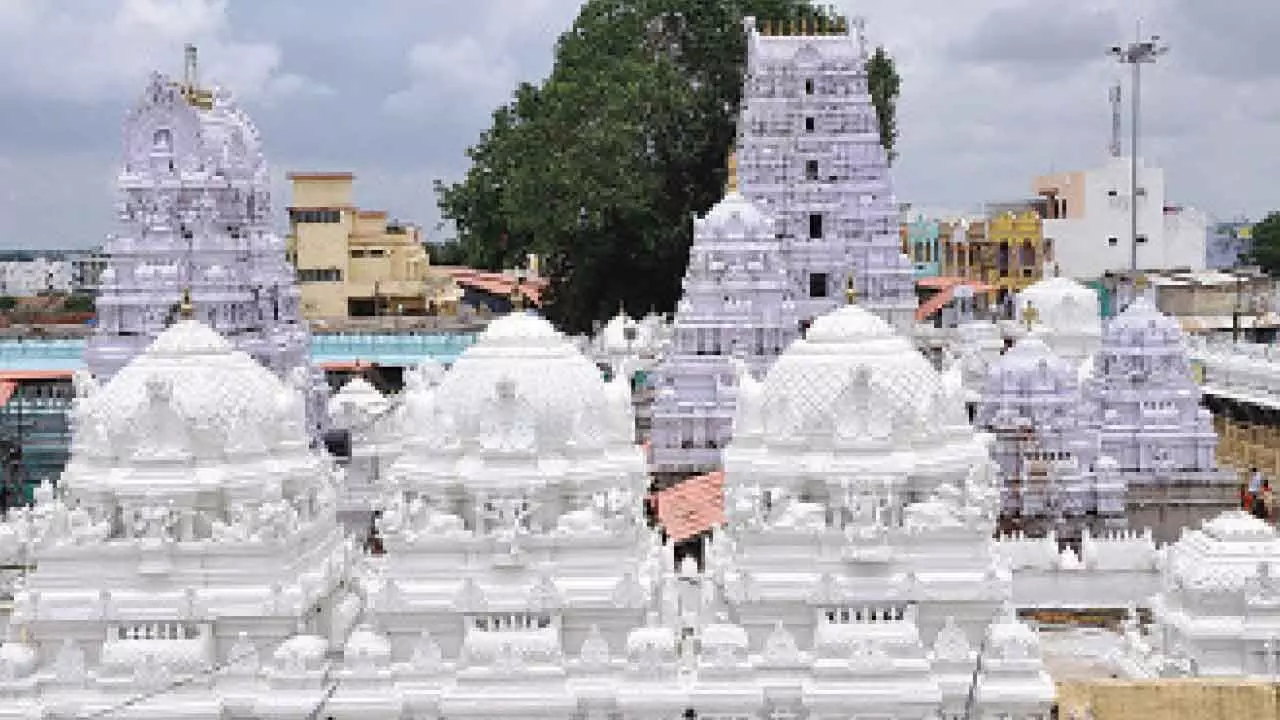Vemulawada Temple Development: Does the TG Endowments Minister want to write her own Agama Shastras for temples?

A question arises: What does Konda Surekha mean by striking a balance between development and Agama Shastras?
Hyderabad: Telangana State Endowments Minister Konda Surekha has raised questions about her intention to write her own version of Agama Shastras for temple development. Known for landing in controversies, the Minister has reportedly emphasised the “necessity of striking a balance between development and adherence to traditional Agama Shastras”.
This statement was made after an extensive review meeting on the development of the historic Vemulawada Temple aimed at ensuring its vibrancy and sustainability for the next 100 years. While her intentions to enhance the temple’s future are not in doubt, her assertion about balancing development with Agama Shastras is being questioned.
Agama Shastras specific to temples encompass philosophy, yoga, mantras, rituals for worshipping deities, and temple architecture, all aligned with the cosmology associated with the consecrated deity.
A former senior endowments official, speaking to Hans India, noted, “I have attended several meetings regarding the restoration of temple lands, properties, and development. Ultimately, the decisions made by ministers and political leaders determine the outcome. Very few officials, even at the secretary level, dare to challenge decisions that contradict the Agama Shastras.”
The endowments law stipulates that the state government acts only as a trustee, not the owner, of temples. Numerous legal precedents exist that limit government interference in ritual and Agama rules.
In light of this, the question arises: what does the minister mean by striking a balance between development and Agama Shastras?
Is she asserting that the state government should wield overriding power over the core religious affairs of the temples, allowing secular officials to intrude into the sacred domains of Hindu temples?
Additionally, the Minister aims to enhance the spiritual experience by introducing devotional music within the temple.
This raises another pressing question: who determines what constitutes a spiritual experience?
The Minister's advocacy for altering Agama Shastras falls outside the legal powers granted to the endowments department or the state under endowment laws. Making such assertions in the presence of experts from Kanchi Kamakoti Peetam and temple affairs raises further questions.

